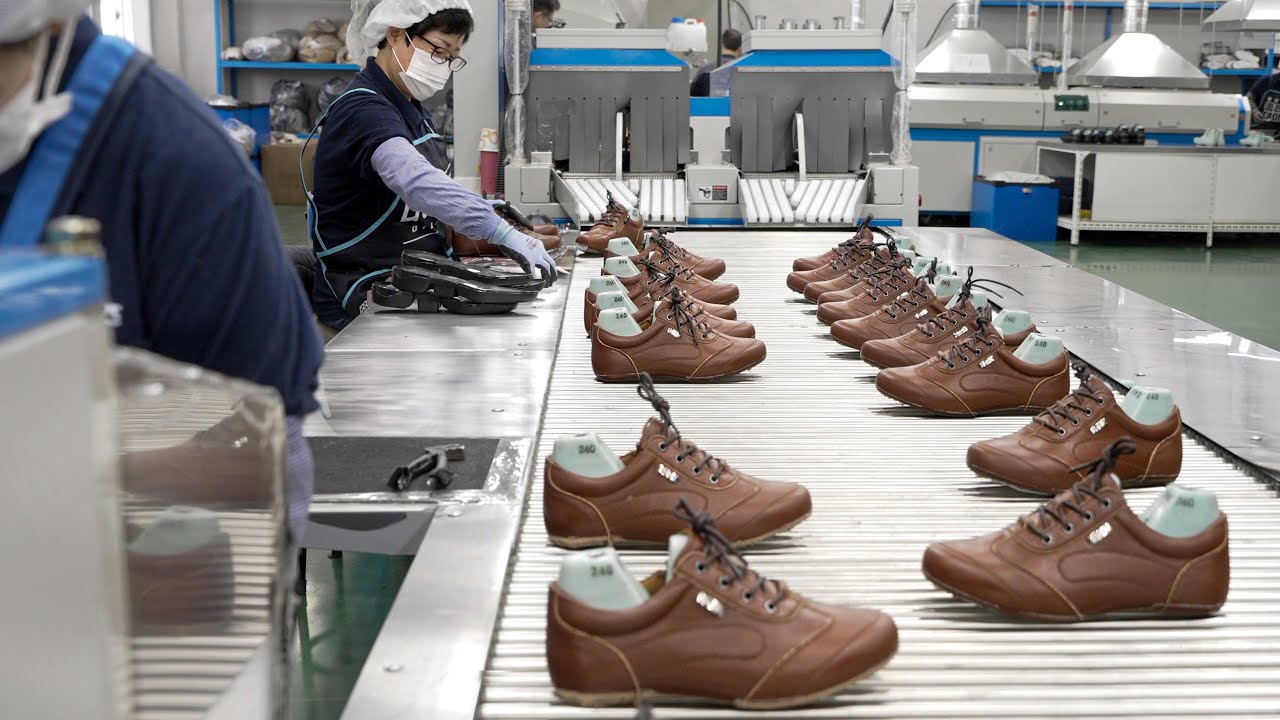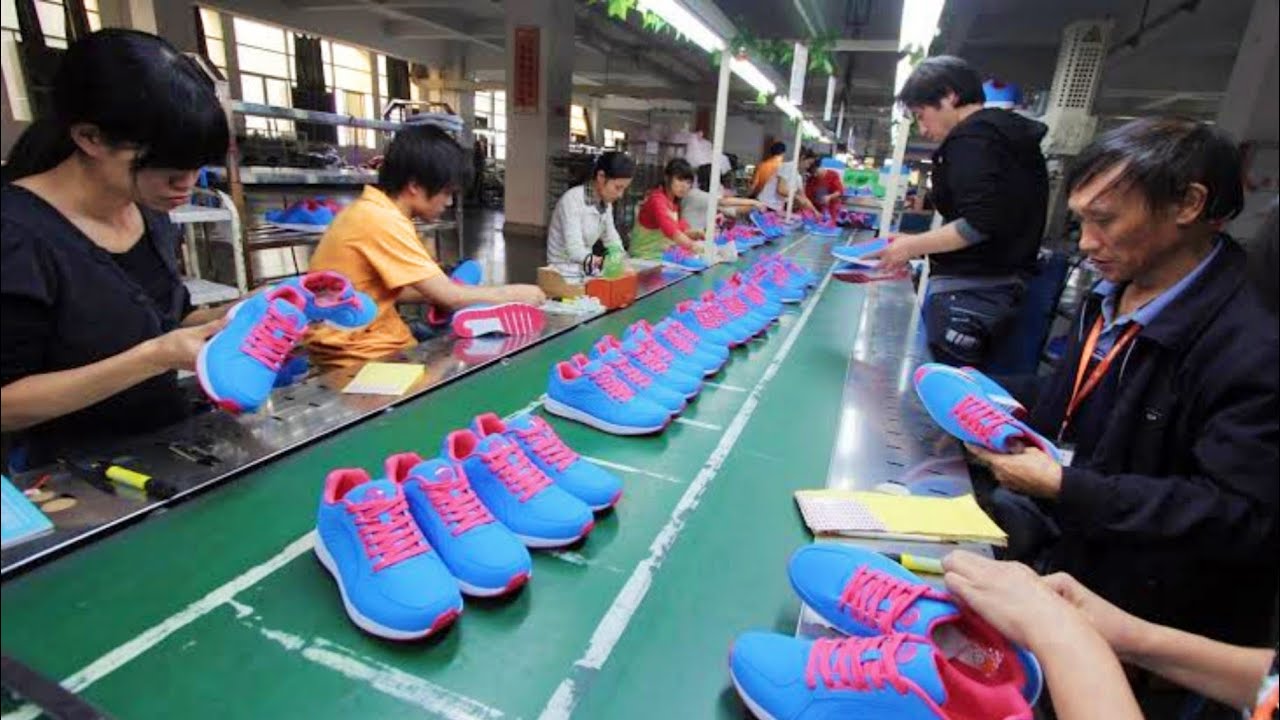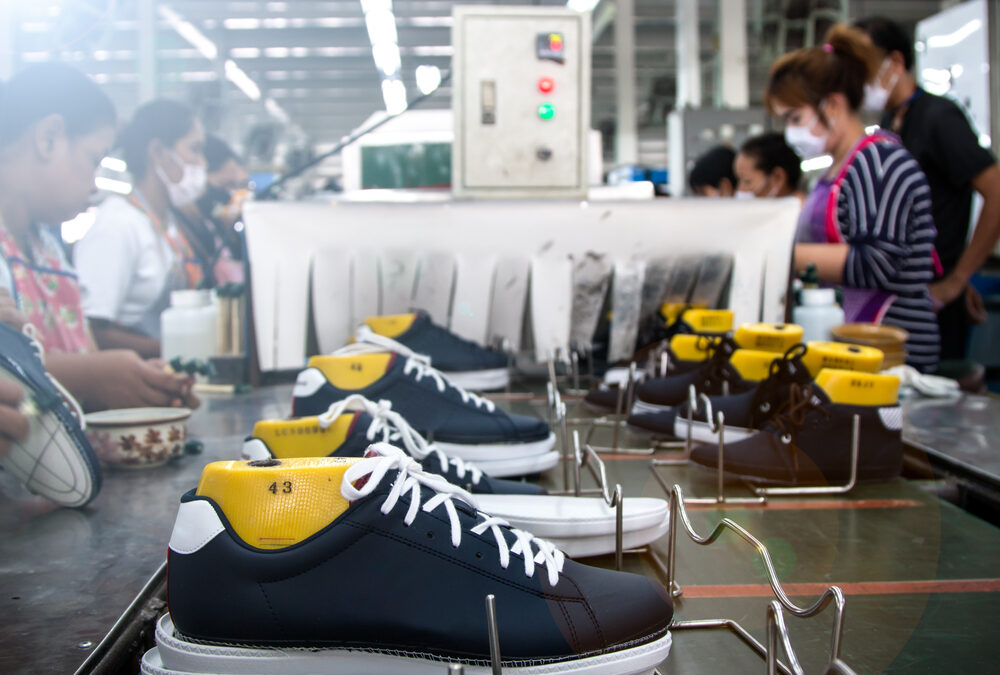Shoe manufacturing is a fascinating industry that involves the creation of footwear from scratch. It requires a unique combination of skills and creativity, making it a viable careeroption for those with a passion for fashion and footwear. In this article, we will explore the job requirements, work environment, and potential opportunities for growth and advancement in shoe manufacturing to help you determine,is shoe manufacturing a good career path?
What Is Shoe Manufacturing?
Shoe manufacturing is the process of creating footwear, which involves designing, cutting, stitching, and assembling various parts of a shoe. The manufacturing process typically begins with the design phase, where a designer creates a sketch or 3D model of the shoe.
Then, the pattern is created, and the shoe is cut out of various materials such as leather, rubber, or synthetic materials. The shoe parts are then stitched together, and additional components such as soles, heels, and insoles are added.
Finally, the shoes go through a finishing process, which includes cleaning, polishing, and packaging for shipment. Shoe manufacturing can be done by hand or through automated machinery, and the process can vary depending on the type of shoe being made.
Reasons Why Shoe Manufacturing Is A Good Career Path
There are several reasons why shoe manufacturing can be a good career path for those interested in the fashion industry and who have a passion for footwear. Here are some of the top reasons:
- Creative Opportunities- As a shoe manufacturer, you will have the opportunity to be creative and bring your designs to life. Whether you are creating a new shoe from scratch or making modifications to an existing design, the process of shoe manufacturing allows you to express your creativity and develop innovative solutions.
- Skill Development- Working in shoe manufacturing requires a range of skills, including attention to detail, hand-eye coordination, and problem-solving. These skills can be developed and honed through experience, making it a great career choice for those who want to continuously improve their abilities.
- Career Advancement- With experience, there are many opportunities for growth and advancement in shoe manufacturing. You can move up to become a team leader or supervisor, specialize in different areas of shoe manufacturing, or even start your own shoe-manufacturing business.
- Job Stability- While some shoe manufacturing jobs have moved overseas, there is still a demand for skilled shoe manufacturers in the United States. Additionally, as the population continues to grow, the demand for shoes will likely continue to increase, providing job stability in the industry.
- Passion for Footwear- If you have a passion for footwear and enjoy the process of creating shoes, then shoe manufacturing can be a highly fulfilling career path. There is a sense of satisfaction in seeing your designs come to life and knowing that you are contributing to the fashion industry.
Shoe manufacturing can be a good career path for those who are passionate about shoes and have the necessary skills to succeed in the industry. The job can be physically demanding, but the creative opportunities, skill development, career advancement, job stability, and passion for footwear make it a highly rewarding profession.
Highest-Paying Jobs In The Shoe Industry
The shoe industry offers a wide range of career paths, from design and development to manufacturing and marketing. Here are some of the highest-paying jobs in the shoe industry:
- Shoe Designer- Shoe designers are responsible for creating new footwear designs that meet the needs of the market. They work with a team of designers, product developers, and merchandisers to create concepts, sketches, and prototypes. According to PayScale, the average salary for a shoe designer is around $76,000 per year.
- Footwear Product Manager - Footwear product managers oversee the development and production of footwear products. They work closely with designers, developers, and manufacturers to ensure that products meet customer needs and are delivered on time and within budget. According to Glassdoor, the average salary for a footwear product manager is around $107,000 per year.
- Shoe Materials Manager- Shoe materials managers are responsible for sourcing and managing the materials used to make shoes, including leather, textiles, and hardware. They negotiate with suppliers, track inventory levels, and ensure that materials meet quality standards. According to PayScale, the average salary for a shoe materials manager is around $78,000 per year.
- Footwear Sales Representative- Footwear sales representatives sell shoes to retailers, wholesalers, and individual customers. They use their knowledge of shoe trends and product features to pitch products and close deals. According to Glassdoor, the average salary for a footwear sales representative is around $55,000 per year.
- Footwear Marketing Manager- Footwear marketing managers are responsible for developing and executing marketing campaigns that promote shoes and build brand awareness. They work closely with designers and product managers to create marketing materials and strategies that align with the brand's vision. According to PayScale, the average salary for a footwear marketing manager is around $89,000 per year.
What Is The Manufacturing Process Of Shoes?

Comfy Leather Shoes Manufacturing Process. Korean Shoes Factory
The manufacturing process of shoes can vary depending on the type of shoe being produced, the materials used, and the production methods employed by the manufacturer. However, the following is a general overview of the manufacturing process of shoes:
- Design- The first step in shoe manufacturing is the design process, where a designer creates a sketch or 3D model of the shoe. The design is then reviewed, modified, and finalized before moving on to the next step.
- Pattern Making- Once the design is finalized, a pattern is created based on the design specifications. The pattern is a template that is used to cut the various parts of the shoe out of the chosen material.
- Cutting- The next step is cutting the materials using the pattern as a guide. This is usually done by hand or by a machine, depending on the size and complexity of the production.
- Stitching- After the materials have been cut, the various parts of the shoe are stitched together using thread and specialized machines. This process involves joining the upper part of the shoe with the sole, the heel, and other components.
- Lasting- The lasting process involves molding the shoe into its final shape. This is done by placing the shoe on a mold called a "last" and then shaping the upper material around it.
- Finishing- Once the shoe has lasted, it is ready for finishing. This process involves cleaning, polishing, and buffing the shoe to give it a smooth and attractive appearance. Additional components such as laces, buckles, and other decorative elements may also be added at this stage.
- Inspection- After finishing, the shoe undergoes a final inspection to ensure that it meets quality standards. Any defects or issues are identified and corrected before the shoes are packaged and shipped.
What Machine Is Used To Make Shoes?
Shoe manufacturing involves the use of a wide variety of specialized machines, each designed for a specific task in the production process. Here are some of the most common machines used to make shoes:
- Cutting machines- These machines are used to cut shoe parts from materials such as leather, textile, and synthetic fabrics. Depending on the material and production requirements, different types of cutting machines may be used, including hydraulic clickers, traveling head presses, and computer-controlled laser cutters.
- Sewing machines- Sewing machines are used to stitch the various parts of the shoe together. There are many types of sewing machines used in shoe production, including lockstitch machines, chain stitch machines, and programmable pattern sewing machines.
- Lasting machines- Lasting machines are used to shape the upper part of the shoe around the last, which is a mold that determines the final shape and size of the shoe. There are several types of lasting machines used in shoe production, including cementing machines, toe-lasting machines, and side-lasting machines.
- Molding machines- Molding machines are used to create the sole of the shoe by injecting molten rubber, PVC, or other materials into a mold. These machines can be automated or operated manually, depending on the production volume and complexity of the shoe design.
- Finishing machines- Finishing machines are used to give the shoe its final appearance and texture. These machines can include buffing machines, burnishing machines, and polishing machines.
Who Manufactures Nike Shoes?

How Nike Shoes Made In A Factories | Shoes Production Process | Most Satisfying Factory Machines
Nike, Inc. is a multinational corporation that designs, develops, and sells athletic footwear, apparel, and equipment. While Nike has manufacturing facilities in several countries, the company does not directly own or operate most of these facilities. Instead, Nike outsources the production of its shoes and other products to independent contract manufacturers, primarily located in Asia.
Some of the largest contract manufacturers of Nike products include Taiwanese firm Pou Chen Corporation, Chinese companies Taekwang Industrial Co., Ltd. and Feng Tay Enterprises Co., Ltd., and South Korean firm Youngone Corporation. These companies operate large-scale production facilities with advanced technology and employ thousands of workers who manufacture Nike shoes and other products.
Nike works closely with its contract manufacturers to ensure that they adhere to the company's code of conduct and comply with local labor laws and regulations. This includes regular factory inspections and audits to monitor working conditions, worker safety, and environmental sustainability. By outsourcing production to these contract manufacturers, Nike is able to leverage their expertise and economies of scale to produce high-quality products efficiently and cost-effectively.
Is A Shoe Business Profitable?
Starting a shoe businesscan be profitable, but like any other business, success depends on a variety of factors such as market demand, competition, production costs, pricing, and marketing strategies. Here are some reasons why a shoe business can be profitable:
- High demand - Shoes are a necessity for most people and there is a high demand for footwear worldwide - This demand is driven by factors such as changing fashion trends, increased awareness of health and fitness, and growing consumer preferences for comfortable and durable shoes.
- Repeat customers- Shoes are an item that people tend to buy repeatedly over time, which means that there is a strong potential for repeat business and customer loyalty.
- Profit margins- Depending on the type of shoe and the production costs, there can be relatively high-profit margins in the shoe business. This is especially true for high-end or luxury shoes that are sold at premium prices.
- Diversification- The shoe industry offers a wide variety of products, from sneakers and boots to sandals and dress shoes. This diversification allows businesses to cater to different markets and expand their product lines.
- E-commerce- With the rise of e-commerce, shoe businesses can now reach a wider audience and sell their products online, without the need for a physical storefront. This can reduce overhead costs and increase profitability.
People Also Ask
What Skills Do You Need To Work In Shoe Manufacturing?
A: To work in shoe manufacturing, you need to have strong attention to detail, good hand-eye coordination, and physical dexterity. You should also be able to work well in a team environment and have excellent problem-solving skills.
How Much Do Shoe Manufacturers Make?
A: The salary of a shoe manufacturer can vary depending on the company, location, and experience. According to Glassdoor, the average salary for a shoe manufacturer in the United States is around $33,000 per year.
What Is The Job Outlook For Shoe Manufacturing Careers?
A: The job outlook for shoe manufacturing careers is stable. While some companies have moved their manufacturing operations overseas, there is still a need for skilled shoe manufacturers in the United States.
What Are The Pros And Cons Of Working In Shoe Manufacturing?
A: Pros of working in shoe manufacturing include the opportunity to be creative, the ability to work with your hands, and the potential for growth and advancement. Cons may include the physical demands of the job, the potential for repetitive stress injuries, and the factory environment.
Conclusion
Shoe manufacturing can be a rewarding career path for those who are passionate about shoes and have the necessary skills to succeed in the industry. While the job can be physically demanding and require long hours, there are opportunities for growth and advancement within the industry. It is important to do your research and find a company that aligns with your values and goals to ensure a fulfilling career in shoe manufacturing.
